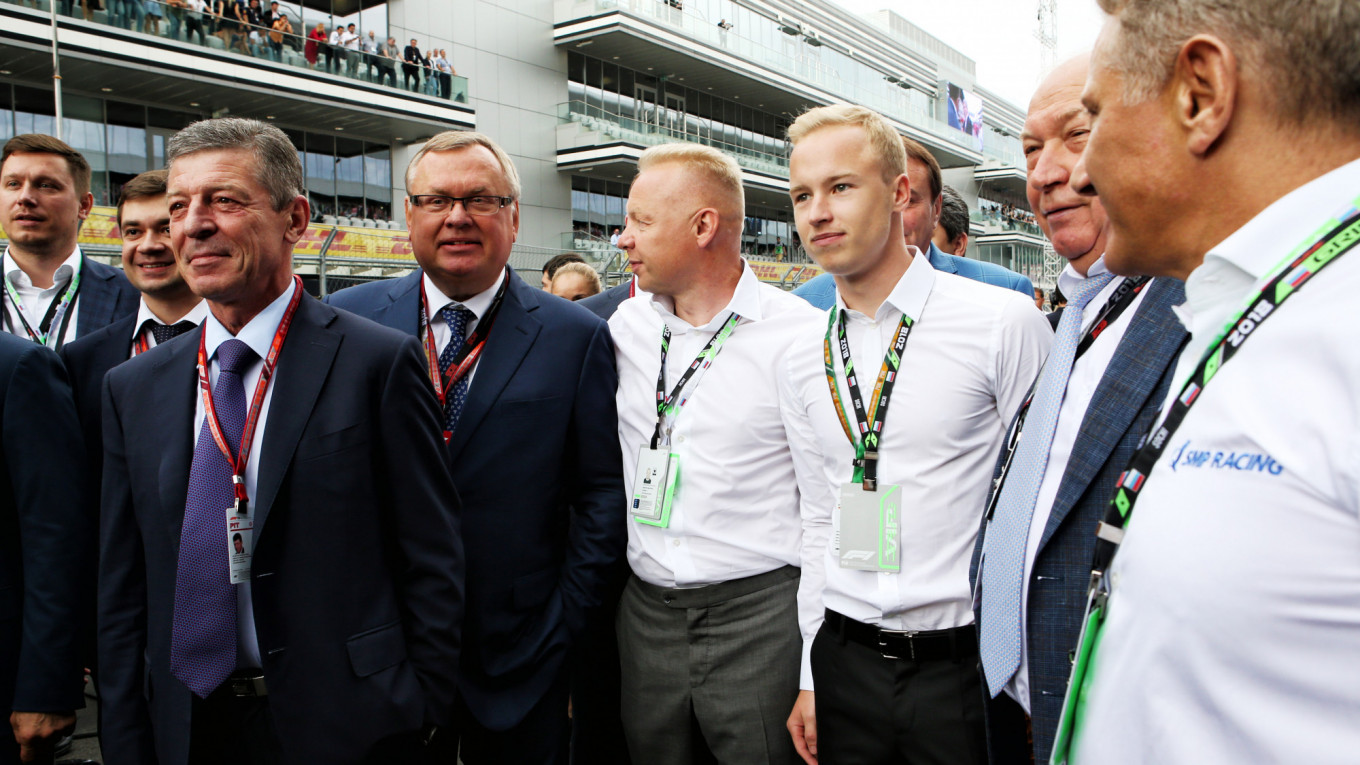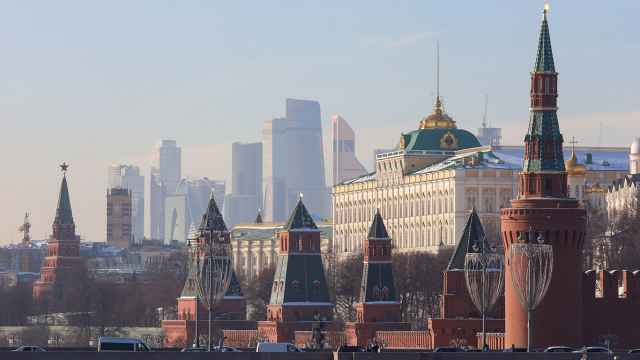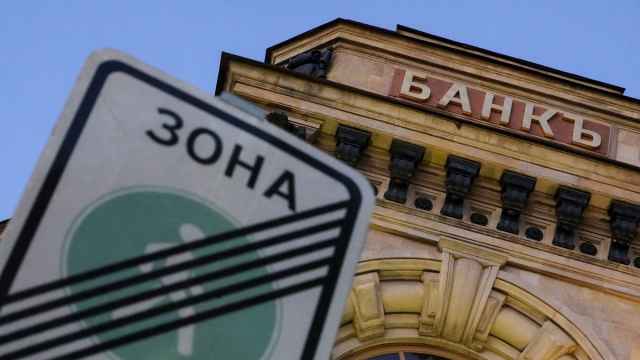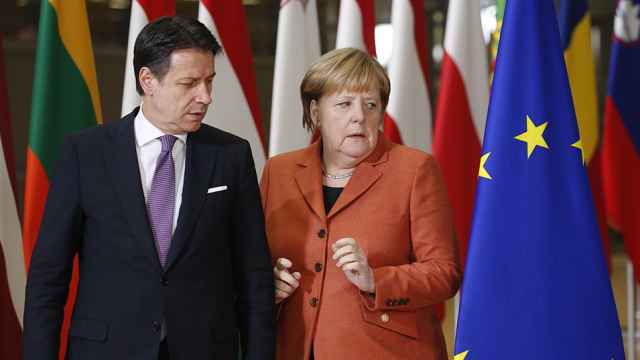Motor racing driver Nikita Mazepin, sacked by the Haas Formula One team after Russia's invasion of Ukraine, on Wednesday was added to the list of Russians sanctioned by the European Union.
His father, oligarch Dmitry Mazepin, the owner and chief executive of chemical giant Uralchem, was also sanctioned.
Dmitry Mazepin "is engaged in activities in economic sectors that constitute a substantial source of income for the government of the Russian Federation," the EU said in a statement.
His son, whose seat at Haas was filled on Wednesday by former driver Kevin Magnussen, was also included on the EU blacklist as he was considered "a natural person linked to an influential businessman [his father] with an activity in economic sectors which constitute a source substantial revenue to Russia."
The EU list, drawn up since Moscow's annexation of Crimea in 2014, now includes 862 people and 53 entities in total.
They are banned from entering the EU and their assets in Europe have been frozen.
"On Feb. 24, 2022, following the early stages of the Russian aggression," Dmitry Mazepin and 36 other businessmen "met with President Vladimir Putin and other members of the Russian government to discuss the impact of the course of action in the wake of Western sanctions," added the statement.
This showed "that he belongs to the circle closest to Vladimir Putin."
Earlier Wednesday, Nikita Mazepin said he was creating a foundation to help sportspeople who have found themselves barred from competing due to "political reasons out of their control."
Mazepin and Haas's Russian title sponsor Uralkali had their contracts terminated last Saturday as a result of Russia's invasion of Ukraine.
Mazepin, 23, said the funds for the 'We compete as one' foundation would come from the money that Uralkali would have paid Haas.
He said their treatment by American team Haas was not "fair" and that he had been willing to abide by motorsport governing body the FIA's ruling to compete as a neutral athlete.
"Today I'm announcing the creation of a foundation that will be devoted to helping athletes who, for political reasons out of their control, lose their ability to compete at the highest level," he said.
Foundation
"It will be funded by Uralkali, using the money that had been intended for Formula 1 sponsorship this season."
Mazepin — who failed to register a point in his maiden season in Formula One last year — said it would not just be reserved for Russian and Belarusian athletes.
Kremlin ally Belarus has been used as a key launchpad for Moscow's offensive and sports federations have also stepped up measures against the country.
"The foundation will allocate resources both financial and non-financial to those athletes who have spent their lives preparing for Olympics or Paralympics, or other top events, only to find that they were forbidden from competing and collectively punished just because of the passport they held," Mazepin said.
"This will include athletes from all conflict zones and our door is open to everybody. We will begin with the Paralympic team in Russia, which was banned from the Games in Beijing."
The sacking of Mazepin and the tearing up of Uralkali's contract followed hot on the heels of Formula One declaring the Russian Grand Prix had been removed from the calendar permanently.
The Black Sea resort of Sochi, which hosted the inaugural race in 2014, had been due to hold the Grand Prix for the final time this year before it moved to Saint Petersburg in 2023.
A Message from The Moscow Times:
Dear readers,
We are facing unprecedented challenges. Russia's Prosecutor General's Office has designated The Moscow Times as an "undesirable" organization, criminalizing our work and putting our staff at risk of prosecution. This follows our earlier unjust labeling as a "foreign agent."
These actions are direct attempts to silence independent journalism in Russia. The authorities claim our work "discredits the decisions of the Russian leadership." We see things differently: we strive to provide accurate, unbiased reporting on Russia.
We, the journalists of The Moscow Times, refuse to be silenced. But to continue our work, we need your help.
Your support, no matter how small, makes a world of difference. If you can, please support us monthly starting from just $2. It's quick to set up, and every contribution makes a significant impact.
By supporting The Moscow Times, you're defending open, independent journalism in the face of repression. Thank you for standing with us.
Remind me later.






